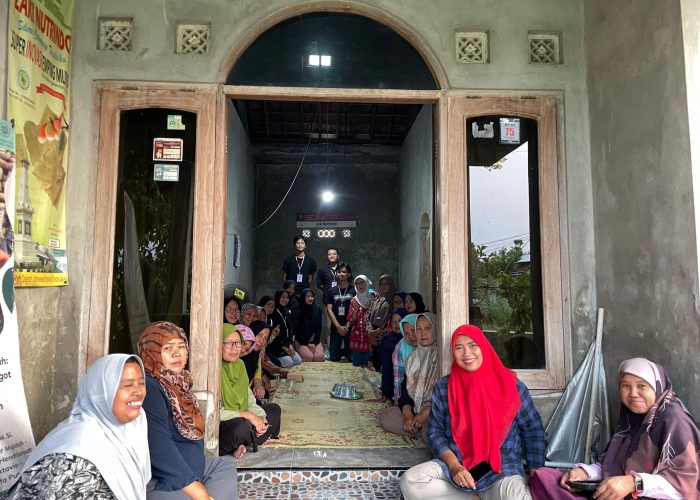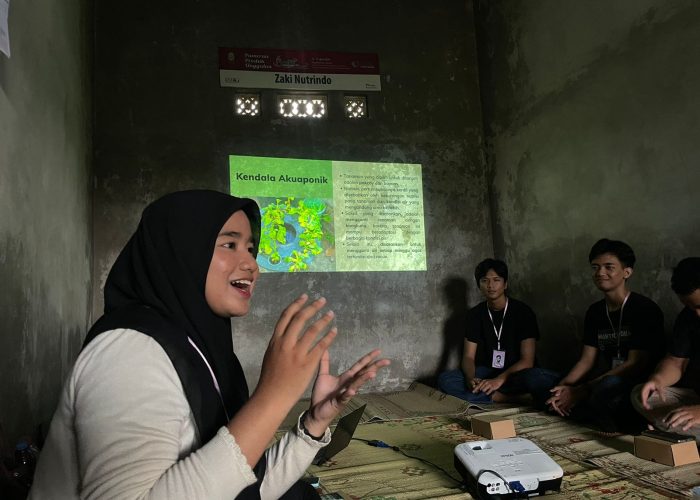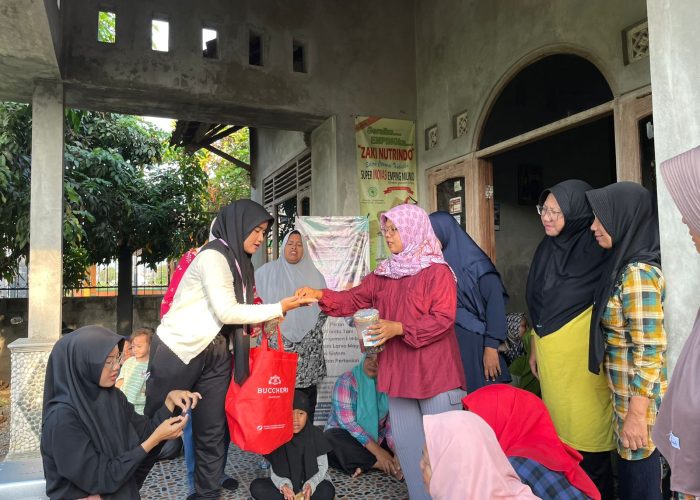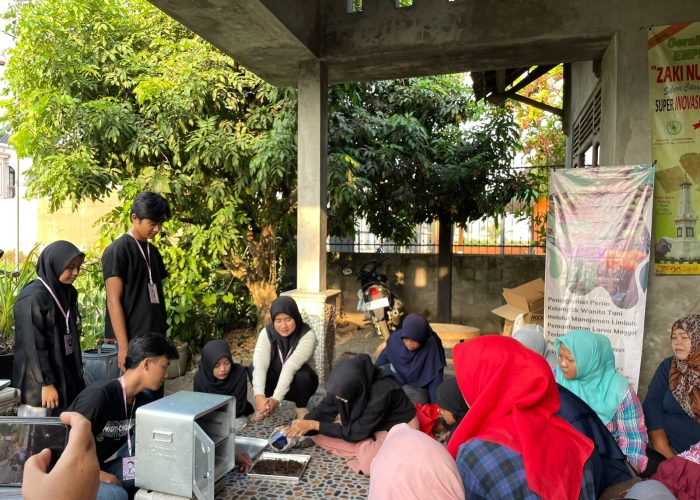To enhance the active role of the Women Farmers Group in supporting Circular Waste Management, the 2024 PkM-MBKM team, led by Dr. Diah Rachmawati, S.Si., M.Si., conducted an evaluation of integrated organic waste processing using the aquaponics system. This event took place on Saturday, October 5, 2024, from 3:30 PM to 5:30 PM at the Kelompok Wanita Tani (KWT) Amanda in Pedukuhan Kepuh Wetan, Wirokerten Village, Banguntapan District, Bantul Regency, Special Region of Yogyakarta. During the event, the PkM-MBKM team members—Hanif Fauzan Saputra, Salma Nur Majidah, Maharani Pratiwi S.A., M. Reza Hendriansah, Rima Vegi Santika, Eka Nur Oktavia, Adzkiya Aqmaliza R., and Agra Daffa Putra—presented a progress report and evaluation of the integrated organic waste processing using the aquaponics system previously implemented. The evaluation included identifying challenges encountered during the monitoring process, along with effective solutions for issues in maggot cultivation, plant cultivation via aquaponics, and catfish farming. Some obstacles included several catfish dying and plant growth being slightly slower, likely due to high ammonia levels. These issues could be resolved by more frequent water changes to prevent murkiness and reduce ammonia concentration. Additionally, selecting the appropriate plant species is crucial in an aquaponic system.
Maggots hold significant potential as feed for livestock and fish. The PkM-MBKM team also provided materials and practical training on processing maggots into livestock and fish feed using several methods, including: direct feeding of maggots for livestock or fish, drying the maggots via oven, sun drying, or roasting to produce feed with a longer shelf life, and creating powdered feed through fermentation for a finer product with even greater longevity. The next activity involved a practical session on innovating maggot-based livestock and fish feed, specifically by drying maggots in an oven. This process can be done in two ways: at a lower temperature of 60°C for 10 minutes, or at a higher temperature of around 80°C for 3 to 5 minutes. The dried maggots can be used directly as feed, offering the advantage of a longer shelf life without spoilage at room temperature.
This activity provided benefits for students by developing research and social empowerment skills, while partners gained from the optimization of waste management and increased productivity. The innovation of processing maggots into fish feed will be implemented to boost income. This collaboration strengthens the sustainable relationship between the PkM-MBKM team from the Faculty of Biology UGM and its partners (SDG 17), increases environmental awareness, and develops entrepreneurial opportunities, particularly for the KWT Amanda, contributes to the development of the community’s economy in line with Sustainable Development Goals (SDG 4 and 8).







